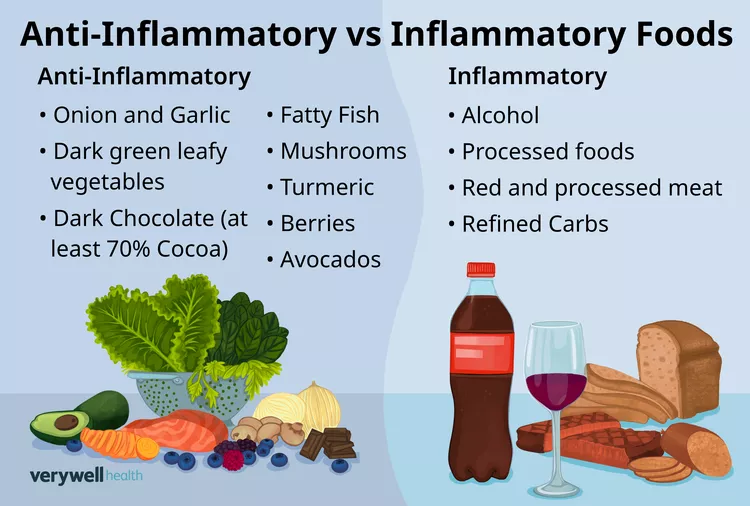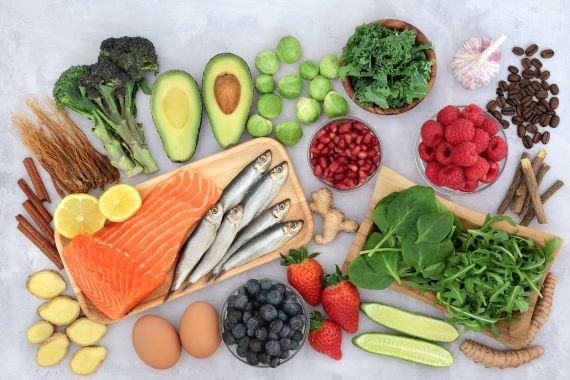Table of Contents
Feeling sluggish, achy, or just not quite yourself? Chronic inflammation could be playing a part—and luckily, there are plenty of natural ways to tackle it. Instead of jumping straight to medications, many people are discovering how simple changes in diet, lifestyle, and supplements can make a huge difference. In this article, we’ll explore how to reduce inflammation naturally by focusing on foods, herbs, exercise, and daily habits that support your body’s balance and help you feel better day by day.
What Is Inflammation and Why Should You Care?
Inflammation is your body’s natural response to injury or infection. It’s a helpful process when it’s short-term, but when inflammation sticks around longer than it should—known as chronic inflammation—it can contribute to many health problems like joint pain, fatigue, and even heart disease.
Anti-Inflammatory Foods: Your First Line of Defense
One of the most effective ways to reduce inflammation naturally is through your diet. Anti-inflammatory foods are packed with nutrients that help calm your immune system and repair damage.
Some of the best foods that fight inflammation include:
- Berries like blueberries and strawberries
- Leafy greens such as spinach and kale
- Nuts like almonds and walnuts
- Fatty fish rich in omega-3s, such as salmon and mackerel
Building an anti-inflammatory diet plan around these foods helps your body stay balanced and resilient.
Natural Remedies for Inflammation You Can Try Today
Alongside eating right, there are powerful natural remedies for inflammation that come from nature. Turmeric for inflammation is one of the most popular thanks to its active compound curcumin, which has been shown to reduce swelling and pain. You can add turmeric to your meals or take it as a supplement.
Similarly, herbs for inflammation like ginger, garlic, and green tea offer anti-inflammatory effects without side effects.
Why Omega-3s Are Essential
You might have heard about omega-3 anti-inflammatory benefits—and for good reason. These healthy fats reduce inflammation at the cellular level and support heart and brain health. If you’re not eating enough oily fish, consider a high-quality fish oil supplement or plant-based alternatives like flaxseed oil.
Lifestyle Changes That Make a Big Impact
Reducing inflammation isn’t just about food. Anti-inflammatory lifestyle tips can be just as powerful. Managing stress through meditation or yoga improves inflammation and stress management, while regular anti-inflammatory exercise routines help keep your immune system in check.
Also, quality rest plays a role—poor inflammation and sleep quality often feed off each other. Prioritize good sleep habits to help your body repair overnight.
Supplements and Drinks That Support You
Looking for the best supplements for inflammation? Besides turmeric and omega-3s, magnesium and probiotics can support gut health, which is key since inflammation and gut health are closely linked.
Don’t overlook anti-inflammatory drinks either. Green tea, tart cherry juice, and ginger tea are delicious ways to sip your way to less inflammation.
Avoid These Foods That Cause Inflammation
Just as some foods help, others can worsen inflammation. Highly processed snacks, sugary drinks, and excessive red meat fall into the category of foods that cause inflammation. Limiting these can make a noticeable difference.

Tips for Anti-Inflammatory Meal Prep and Recipes
To make healthy eating easier, try anti-inflammatory meal prep—batch cooking meals full of colorful veggies, whole grains, and lean proteins. There are plenty of simple anti-inflammatory recipes available that combine tasty ingredients with inflammation-fighting power.
The Role of Diet in Chronic Inflammation
If you’re dealing with ongoing issues, following a chronic inflammation diet may be recommended by your healthcare provider. This plan emphasizes anti-inflammatory foods and eliminates triggers to help calm your system long-term.
Wrapping It Up: Your Natural Path to Less Inflammation
Reducing inflammation naturally is about a holistic approach—eating well, moving your body, managing stress, and supporting gut and sleep health. With these practical tips, you can build your own anti-inflammatory lifestyle that promotes overall wellness and keeps your body feeling its best.
For More Related Articles, Click Here

